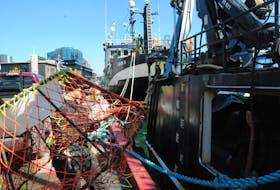ASK THE MONEY LADY,
I am in the process of getting a will but am not sure who I should pick for an executor. Should I use a family member or a friend? Any tips?
Colin
Great question Colin.
A friend or a family member – it all depends?
This will be the person who controls and manages all your assets that you leave behind and will have a legal obligation to carry out your estate plan. Your executor will secure all your assets, make investment decisions if necessary and file your final tax return. It is important for you to choose the right person to be your executor, and to consider the person’s competency and age, availability and location, trustworthiness and dependability.
Please do not chose an executor that does not reside in Canada. This could have legal and/or tax implications depending on your provincial legislation. Under Canadian tax law, an estate is considered to be a trust and we do not want the tax residency of a trust to be questioned if the primary management and control takes place by a non-resident. This will trigger your estate being disposed of its assets as a non-resident, subject to capital gains tax, possible withholding tax, loss of enhanced dividend tax treatments, and even being subject to the rules and regulations of the foreign country where your executor resides. Of course, in situations where an estate is subject to tax in two or more jurisdictions, tax conventions and foreign tax credits may be available to reduce the overall tax burden.
Non-resident executors may also be restricted when it comes to investment instructions over the estate’s Canadian investment accounts since this can be viewed as the executor controlling foreign assets. It may also require the executor to report this on their own personal taxes.
For example, a US resident who is acting as an executor of a Canadian estate maybe required to file various US reporting forms and it is a good idea to seek professional assistance to ensure compliance. Another example is in Ontario. If an executor is not a resident of Ontario or a Commonwealth country, the executor is required to obtain a bond. The out-of-town executor could get a bond from an insurance company – but would have to apply and pay for this. Legal, taxation and financial advice should always be considered.
Let’s face it, you worked hard for your money Colin, and the last thing you want is our government (or any other government) getting their hands on your estate. No one would intentially put their assets in jeopardy. Speak to your advisor or estate lawyer to find out if the person you want as an executor is the right choice.
Good luck and best wishes,
Money Lady
What should you consider when appointing an executor?

I wanted to go through some of the duties your executor would have to do. It is not a simple task. The laws vary wildly from one province to another and I can’t stress enough that if you are tasked with this job, you should always seek professional guidance.
Here are some of the basic duties bestowed on an executor and some things to keep in mind when choosing one.
1. Arrange the funeral, cremation or burial (you will need eight to 10 original death certificates). Obtain the ID, credit cards and most recent will of the deceased (you’ll need eight to 10 copies of the notarized will). Cancel the following on behalf of the deceased: driver’s licence, cable, telephone, memberships, credit cards, subscriptions, or leases. Determine if there are any pre-authorized payments coming out of the deceased person’s bank accounts. These accounts will need to be closed and a new bank account opened specifically for the estate (may need probate). Close out their safety deposit box if they had one.
2. Provide the beneficiaries named in the will with a copy. Arrange storage of valuables and important documents. If the deceased had private insurance, advise the company of the death and arrange payment of any amounts owing under their policies. Life insurance proceeds should be paid to the beneficiary or the estate account. RRSPs will need to be rolled over to a spouse or eligible dependants.
3. Collect all debts or payments owed to the deceased, including promissory notes, corporate accounts, or accounts receivables. If the deceased was a business owner, obtain a copy of the partnership or shareholders agreement to determine the estate’s rights, responsibilities, entitlements and liabilities.
4. Review the will with a professional and determine if the estate is solvent and if probate is required. At a minimum, a preliminary valuation of the estate should be done. Determine the adjusted cost base for tax purposes of each capital property. If you do not live in the same province as the deceased, you may need to post a bond before taking over the estate to protect creditors or beneficiaries. This bond would be for the full value of the estate.
5. Redirect the deceased’s mail to your address. All real estate should be transferred to the executor and any mortgagees will need to be notified. Contact all financial institutions to have investment accounts transferred into the executor’s name. Consider which assets should be sold or liquidated. Keep impeccable notes and run everything through the new estate bank account. Advise (CPP/QPP) Canada/Quebec Pension Plan and OAS-Old Age Security. Apply for and fill out the application for the survivors’ benefit for eligible dependants. Determine the deceased income for the year until death, capital gains/losses and tax obligations in or outside Canada. Prepare and file all necessary income tax returns to the date of death. Request clearance certificates from all relevant tax authorities. You may also need to file an estate income tax return. Please seek professional advice since rules vary by province.
Death is not a nice topic to discuss, but one that is necessary. If you are a business owner, have specific wishes, or simply feel that your estate would be better handle by a professional, you could choose a trust and estate service that are available at most financial institutions. Without the stress, grief and emotion, a trust company can carry out all necessary executor duties.
Good luck and best wishes,
Money Lady
Written by Christine Ibbotson, author of the best-selling book, “How to Retire Debt Free & Wealthy” and a new book, "Don’t Panic – How to Manage your Finances and Financial Anxieties During and After the Coronavirus,” available at all bookstores across Canada. If you have a money question, please email on website: www.askthemoneylady.ca.









